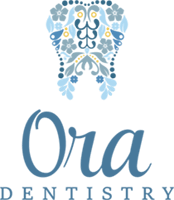Tooth Pain Relief
Anyone who has experienced a severe toothache will tell you that tooth pain is among the worst discomfort you will ever experience. When you have a toothache, your only thought is how to get relief from the pain. We have the answer at Ora Dentistry. With our state-of-the-art dental technology, we will examine the area of discomfort, identify the cause and implement a solution.
There can be several reasons for tooth pain. One of the top causes of this type of pain is tooth decay. When the strong enamel of the tooth is dissolved by bad bacteria in the mouth, the decay then moves to the second layer of the tooth, called the dentin. This layer is softer, so decay moves faster. Some people may feel discomfort as the decay moves closer to the nerve or pulp of the tooth.
When decay attacks the pulp, an abscess may form, causing extreme pain. Inflammation becomes an issue as toxins begin to dissolve bone and pus forms at the apex of the root of the tooth. Even at this stage, if most of the tooth is not destroyed, root canal therapy may save the tooth, and it will relieve the pain. If the tooth is not salvageable, it will need to be extracted.
Gum disease is another cause of tooth pain. As gum disease advances, the roots of the teeth involved become exposed. They can become quite sensitive and cause discomfort. Proper treatment for gum disease begins with a thorough cleaning of the teeth and removal of the plaque and tartar buildup that is causing the problem. Treatment may also include antibiotics and removal of necrotic gum tissue, depending on the extent of the problem. Treatment restores gum health, and if applied early enough in the process, it will save the teeth as well as provide relief from the pain.
Tooth decay and gum disease may be the major causes of tooth pain, but there are other reasons you may experience discomfort. A cracked or fractured tooth will also cause discomfort. Grinding or clenching your teeth puts additional and damaging stress on teeth. Wisdom teeth are often the source of pain when they are impacted or pressing on a nerve.
Proper diagnosis is always the first step in treatment. After the cause of the pain has been determined, the tooth may need a simple filling, root canal therapy or it may need extraction. In the case of gum disease, treatment is determined by the extent of the disease and tissues affected.
Treatment for Jaw Pain
Millions of Americans experience jaw pain on a daily basis. Treatment for this begins with a careful examination of the teeth and jaw joints to determine the cause. When the cause has been identified, a treatment plan can be put into place.
Jaw pain also has a variety of causes. The most common source of this pain stems from problems with the temporomandibular joint. The muscles that cause your lower jaw to move can be overstressed if you are a person who clenches and/or grinds your teeth. Most often this occurs while you are sleeping. Many people are not aware of this problem unless it is brought to their attention by a partner. Temporomandibular joint problems, or TMJ/TMD, can be treated once they are diagnosed.
Proper diagnosis of TMJ/TMD is important because there can be other sources of jaw pain, such as sinus problems, cluster headaches or tooth pain. When the cause of the pain is positively identified, then proper treatment can be administered.
In the case of teeth grinding or clenching during sleep, a custom-made mouthguard may be the answer. Mouthguards prevent the teeth from rubbing against each other and provide a cushion for the teeth. Stress management techniques may also be part of the treatment because stress is often an underlying cause for grinding and clenching teeth.
Pain Relief for Oral Issues
Whether you are experiencing toothache pain or jaw pain, we have the technology and expertise to make an accurate diagnosis. After determining the cause of your pain and creating a treatment plan for you, it is only a matter of time before you get relief. Depending on the source of your discomfort, relief could be just hours away. Contact Ora Dentistry if you or a family member experience tooth or jaw pain.












